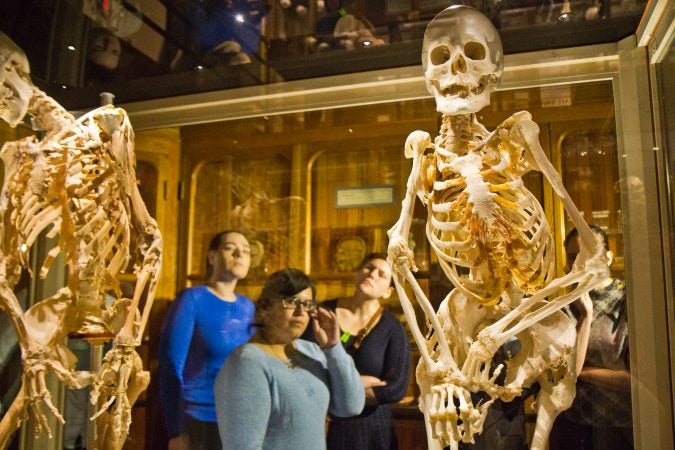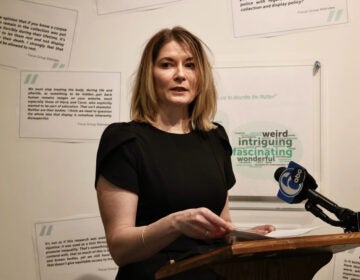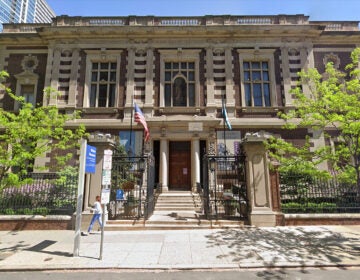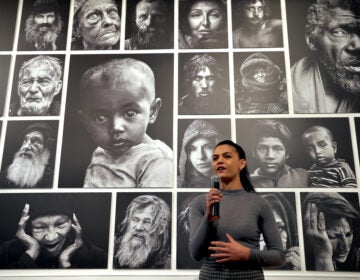Mütter Museum launches public engagement program over the future of its collection
After a controversial decision to rethink its collection of medical pathologies, the Mütter will launch a 2-year public discussion about human remains.

Carol Orzel had FOP, a rare disorder in which connective tissue is replaced by bone. She wished her skeleton to be displayed at the Mütter Museum in Philadelphia. (Kimberly Paynter/WHYY)
From Philly and the Pa. suburbs to South Jersey and Delaware, what would you like WHYY News to cover? Let us know!
The Mütter Museum will soon begin a multifaceted public outreach program to solicit feedback about the future of its collection of human remains.
For the next two years, the museum of the College of Physicians — famous for its preserved body parts and pathological artifacts — will host public discussions, workshops, and exhibitions, and post online videos addressing issues of consent and ethics surrounding the display of that collection. The first public event will be a town hall-style discussion on Oct. 17.
The College of Physicians has received a $285,500 grant from the Pew Center for Arts and Heritage for this public engagement project, called “Postmortem: Mütter Museum.”
“This two year-long project will be the most robust community collaboration project ever undertaken by the Museum,” said executive director Kate Quinn in a statement. “Over the past few months, many in the Mütter community have passionately expressed their thoughts about the Museum’s future and we’ve been listening.”
Quinn, who became director in September 2022, sparked controversy earlier this year with her decision to take down online educational videos that featured human remains from the collection, and revealed intentions to revamp the Mütter Museum with an eye toward a more ethical treatment of its collection, much of which was acquired without express consent from decedents whose remains are displayed.
The move triggered pushback from fans of the museum, as well as former staff, who fear this new direction will destroy what has made the Mütter popular and unique: a straightforward and somewhat macabre look at what disease can do to human bodies.
According to the museum, it has a collection of about 6,500 objects, of which just 3.5% was acquired through informed consent.
In a statement, the institution said it will pull together a team of experts in ethics, medical history, disability studies, and community engagement to do research and create a framework for an exhibition and discussions. It will also engage people in the disability and Black communities, both of whom historically have been harmed by institutions acquiring remains without consent.
The museum will also research its own collection to deepen its institutional knowledge of where and how its artifacts were acquired.
“It’s important — now more than ever — that the Mütter Museum reckon with historically problematic collecting practices, specifically regarding the human remains in our care, and make changes focused on dignity and respect for the living and the dead,” said Quinn.

Get daily updates from WHYY News!
WHYY is your source for fact-based, in-depth journalism and information. As a nonprofit organization, we rely on financial support from readers like you. Please give today.







